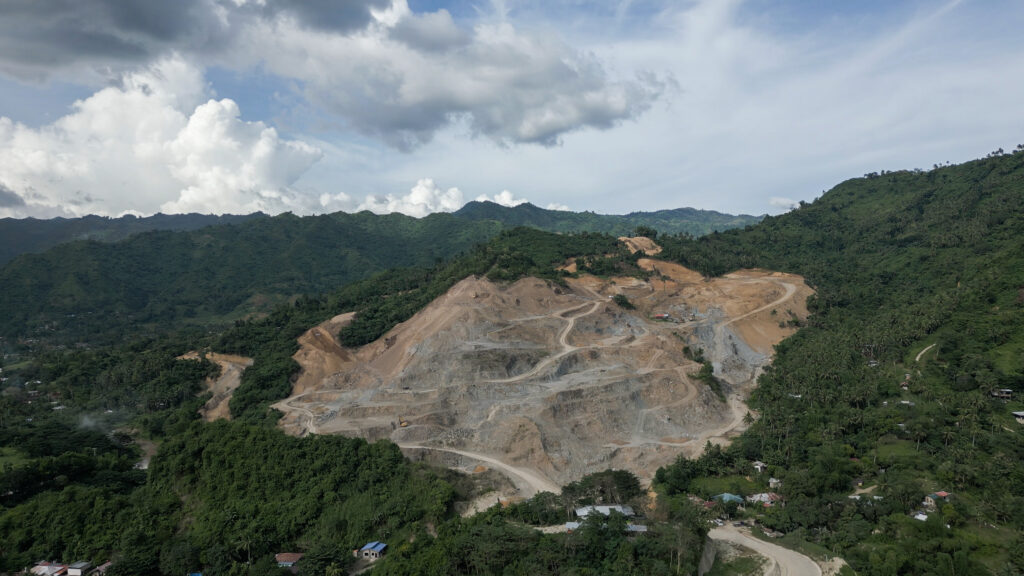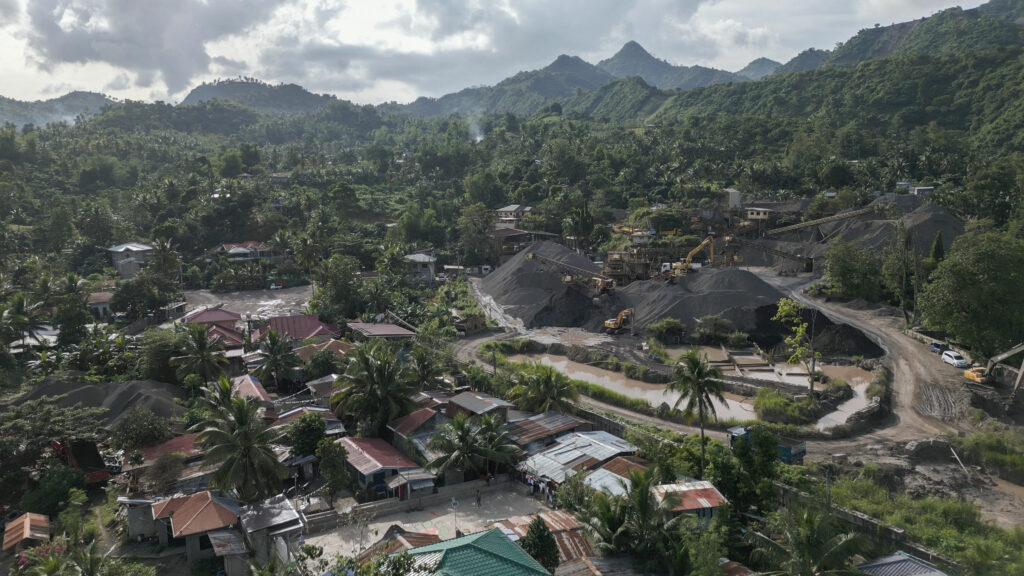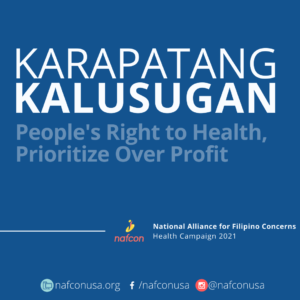Situation Report
On February 6, a landslide struck the mining village of Masara in Maco, Davao de Oro. From the latest data released, the Maco Municipal Disaster Risk Reduction Management Office reported that the death toll reached 68, while 36 people were injured, 63 remain missing, and thousands of families were evacuated as a result of the landslide in a gold mine. Most of the victims were workers of Apex Mining Corporation, an open-pit mining company extracting gold. Leading up to the land-slide Apex ordered workers to continue its 24 hour mining operations despite heavy rains and massive floods.
The Mines and Geosciences Bureau (MGB) states that Apex Mining has nothing to do with the landslide. In a statement released on February 12, the Bureau stated that the Local Government Units (LGUs) and Apex Mining issued an advisory prior to the landslide for mining companies and LGUs, and initiated preemptive evacuations and relief operations due to heavy rainfall. The Bureau noted that the Barangay Masara was outside of the active mine site. The Department of Environment and Natural Resources (DENR) who oversees the MGB has not issued a suspension order to Apex for the reason that the incident happened outside of the mine site.
In response to the landslide, grassroots organizations are calling to hold Apex and the government accountable to the horrible disaster. They state that an immediate independent and fair investigation should be conducted on large-scale mining operations that create a “deadly combination” of irresponsible business and rapid destructive extraction of natural resources, and that there should be a suspension of mining operations in Maco while investigations and relief efforts are underway.
Liberalization of Philippine mining and impacts on the environment
The impact of the mining industry on the rich natural resources of the Philippines dates back to the 1970s, when international financial institutions such as the International Monetary Fund-World Bank promoted mining as a part of loan conditionalities and economic programs for developing countries. Starting with the Marcos Sr. administration, policies that allowed for new modes of foreign ownership of mines and mining activities were passed. The Philippines became a founding member of the Asia Pacific Economic Cooperation, a regional free trade agreement that accounts for 75% of global mining trade and investment, and promoted its membership as a way to connect & grow economies through trade and liberalization, or the loosening of trade rules and regulations.
The Mining Act of 1995 is the biggest example of liberalization of Philippine mining, as it ushered in a foreign-owned, export-oriented mining industry in the country. Through the Mining Act, mining activities are allowed to be 100% foreign owned and operated, incentives for corporations are granted, water sources are available to use at the discretion of the corporation, and communities inside their mining areas can be ejected as long as they are compensated. The Mining Act has provisions recognizing ancestral lands, but requires government acknowledgement of the ownership and occupation of the land. All this with little contribution to the Philippine economy, as the export-oriented structure of the mining industry leaves no room to develop domestic industries.
In the Maco mining tragedy, It’s important to note that the indigenous Lumad community has long been demanding that Apex Mining Corporation leave their ancestral land. The company has only intensified its destruction, exemplified by exacerbating the impacts of Typhoon Pablo in 2012, which resulted in the fatalities of over 1,000 people. Environmental advocates who have exposed the impacts of Apex’s irresponsible mining in the past were unfortunately targeted by state forces.
The Department of Environment and Natural Resources has suspended Apex’s open-pit mining operation twice before. These suspensions were prompted by the alarming levels of environmental damage and degradation caused by the mining activities. These incidents highlight the need for stricter regulations to protect both the environment and the rights of the workers, indigenous people, and other affected communities.
Further impacts of mining on workers and communities
Mining in the Philippines is known as one of the most dangerous jobs, where workers grapple with inadequate protection, frequent violations of their rights, and low-wages. Historically, this industry has witnessed the grim consequences of destructive practices, resulting in death and injuries for numerous workers, with a distressing lack of accountability for many companies involved.
The health impacts in some areas impacted by large-scale mining include the contamination of water sources and respiratory damage. In some areas of the country like Negros Island, which houses the oldest open pit mining company, what was once productive farmland have turned into water-filled pits with mine tailings, or residual ore and chemicals. Dam failures also contaminated the communities’ drinking water source, and had to buy drinking water for Php10 a container.
Along with the environmental impacts and health impacts, mining and development projects have often caused displacement in communities. In NAFCON’s recent medical mission and community learning trip in Cebu, our U.S. delegates learned from community members in Minglanilla about the investments in a “Techno Business Park”, a 100-hectare reclamation project that threatens to displace 500 families and would convert 3,000 hectares of water that provides a source of food and livelihood for fisherfolk into artificially constructed land. The reclamation project involves an open-pit mining process called quarrying, which requires the removal and flattening of land from the mountains to be used for creating land mass elsewhere. In Minglanilla and Cebu, mountains are being destroyed in order to extend the coastline for commercial and corporate development. Upon the reclamation project’s completion, fisherfolk would be unable to access the coastline, while the quarrying projects used for the reclamation leaves farmers with less land to plant their crops. In addition, local communities living near the quarrying projects sites have already been displaced from their homes, and residents who still live nearby are constantly threatened by landslides.


Photos of open-pit mining, quarrying, in Minglanilla Cebu for a reclamation project.
Calls to action
The Philippine government, through its mining liberalization, will only further contribute to the worsening man-made disasters and criminal neglect impacting the Filipino people. We call for the halting of destructive mining projects and holding big mining companies accountable.
NAFCON joins the call for justice for the victims of the Maco landslide and flooding. We echo the calls of the family of the victims, community members, and advocates to investigate the landslide at the Apex Mining site, give adequate compensation to the victims and their families, and hold APEX and DENR accountable to the tragedy.
Through direct action and advocacy, the people are taking matters into their own hands to protect their communities, the environment, and their rights and health. We call for the protection of environmental advocates as they seek justice and accountability for the tragedies that have affected their communities.
In addition, we are partnering with Mindanao Interfaith Services, Inc. to provide a people’s oriented response to families who have been affected by flooding and landslides in Mindanao, including Davao De Oro. Initial reports from the local relief network include,
- Damage Estimates in affected areas: P738.6 million
- Impact on communities:
Over 1.38 million people in total affected
352,272 displaced from their homes due to severity of floods and landslides
Outside of Maco, 22 people lost their lives due to floods and landslides, with more injured and missing.
Donate now to our Bayanihan Disaster Response to support recovery efforts in Mindanao.



